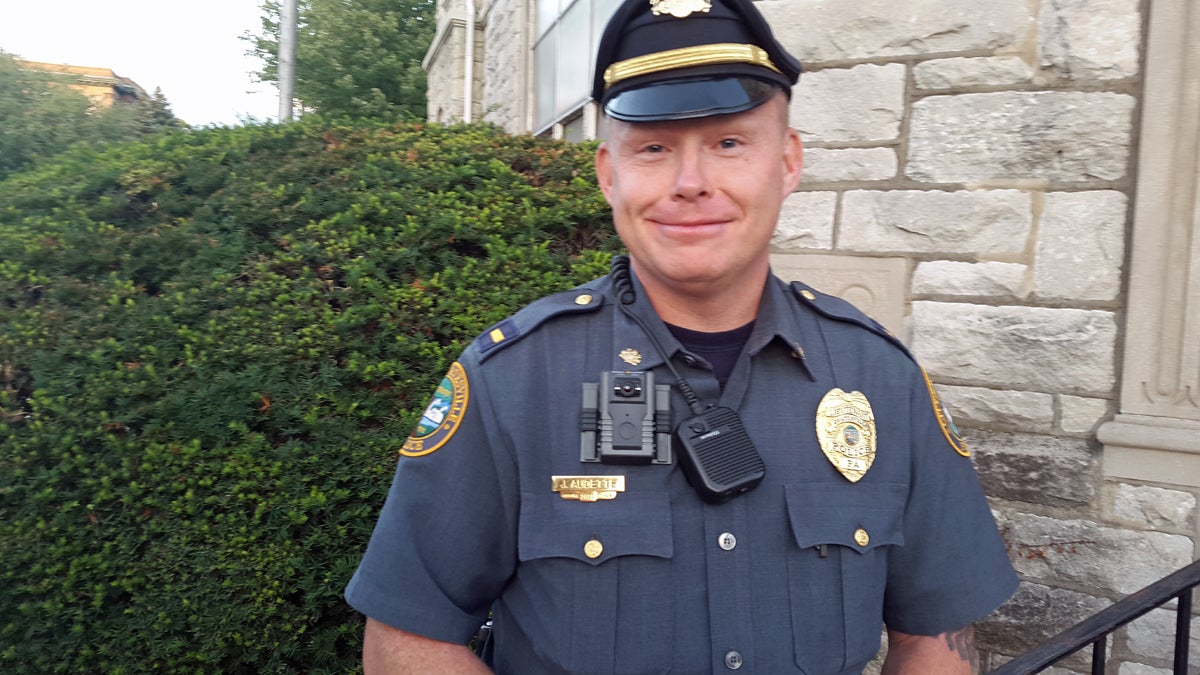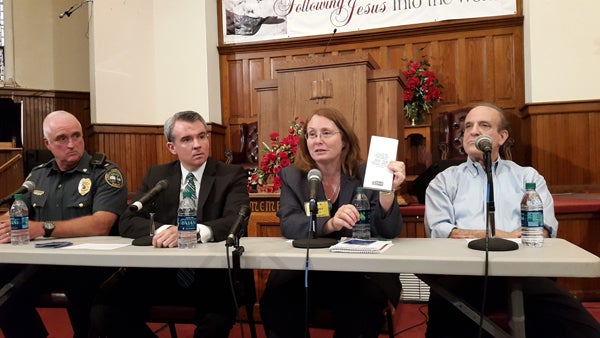Police, ACLU talk video recording in Coatesville

Lt. James Audette with the Coatesville Police Department sports one of eight new body cameras purchased by the force. (Laura Benshoff/WHYY)
Cellphone video is rewriting the rules of police accountability and opening doors for new conversations about the rights and ethics of recording a police encounter.
In a conversation hosted by Concerned Citizens for Coatesville, representatives from the Coatesville Police Department and the American Civil Liberties Union shared information about how to legally record a police stop and talked up their own forays into video technology.
Coatesville Police Chief Jack Laufer debuted one of eight new body cameras purchased for the force and rolled out last week.
The eight cameras allow every officer on duty to record interactions, according to Laufer. When an officer engages the body camera, he or she must let anyone being recorded know that the device is taking audio and video a soon as possible.
Mary Katherine Roper, a lawyer with the ACLU, said her organization is rolling out an app in Pennsylvania that will allow bystanders to send video recorded on cellphones directly to the civil rights group, called “Mobile Justice.”
“We always encourage encourage recording police,” said Roper. “Police have their eye on the community, and the community needs to have their eyes on the police.”
Even with the advent of bystander video and greater transparency, questions and misconceptions remain about what is legal and what is not when stopped by police, Roper said.
“People everywhere watch too much TV with police in them,” she said.
“You have a right to videotape but not a right to interfere. That’s where the line gets gray,” said Laufer.
 (Laura Benshoff/WHYY)
(Laura Benshoff/WHYY)
Gathered in the New Life in Christ Fellowship Church on South Fifth Avenue, Laufer, Roper, local assistant District Attorney Michael Noone and state Sen. Andrew Dinniman, D-Chester, also answered questions about general rights and procedures during a police stop.
Breaking down the ACLU’s Know Your Rights campaign, Roper explained to the crowd of about 50 the difference between a search, stop and arrest — as well as how to lower the risk of violence during any of those encounters.
“You’re not in those shoes, you don’t know what looks suspicious to [an officer],” she said, while explaining when a civilian has to identify himself (during a stop in a car) and when they are legally allowed to decline.
Circumstances during a police encounter are fluid, and an officer may not say why they stop someone, said Roper, who urged caution above all else.
“The officer may have a perfect right and you don’t know it … they’re armed and you probably are not.”
For more information about police protocol and civilians’ rights during a stop, click here.
WHYY is your source for fact-based, in-depth journalism and information. As a nonprofit organization, we rely on financial support from readers like you. Please give today.

